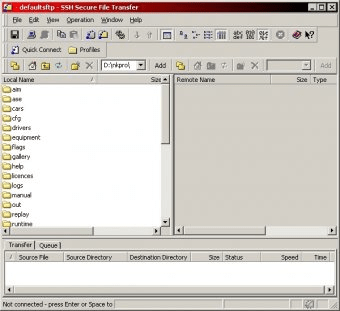

In this case, you can use an SSH key pair.
F SECURE SSH DOWNLOAD CODE
When your CI/CD jobs run inside Docker containers (meaning the environment isĬontained) and you want to deploy your code in a private server, you need a way $SSH_PRIVATE_KEY in the job log, though it could be exposed if you enableĬheck the visibility of your pipelines. In the following example, the ssh-add - command does not display the value of If you are accessing a private GitLab repository. ~/.ssh/authorized_keys) or add it as a deploy key

The most widely supported method is to inject an SSH key into your buildĮnvironment by extending your. If anything of the above rings a bell, then you most likely need an SSH key. You want to rsync files from the build environment to a remote server.You want to execute SSH commands from the build environment to a remote server.You want to deploy your application to your own server, or, for example, Heroku.You want to download private packages using your package manager (for example, Bundler).You want to checkout internal submodules.GitLab currently doesn’t have built-in support for managing SSH keys in a buildĮnvironment (where the GitLab Runner runs). Example project Using SSH keys with GitLab CI/CD.

SSH keys when using the Docker executor.


 0 kommentar(er)
0 kommentar(er)
